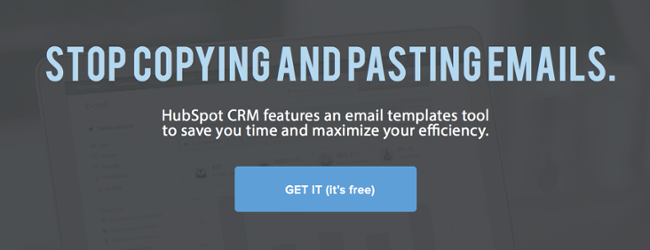Having hired dozens of business development and sales reps I am always amazed at how many candidates make a crucial mistake in the interviewing process. That is, they make it all about them -- instead of about the hiring manager, and what he or she is looking for in a new hire.
Now, that is not to say that the recruitment process shouldn't be about the candidate. However, it should be about them in the context of the business’ needs and the skills and attributes necessary for the role. Many candidates do not take this context into consideration and make boneheaded mistakes early in the process, all but ending their chances of getting hired.
At this point, you might be wondering, "But how would I know the context of the business' needs? I don't work there yet!" This is where research comes in. You'd be amazed at what you can learn about a company from an hour or two of pre-interview research. But when candidates don't research in advance, it shows.
Here's an example of what I mean. I've interviewed countless candidates that tout the breadth and value of their professional network and emphasize how it will make them a rockstar sales rep. What these candidates fail to realize is that HubSpot depends almost exclusively on inbound leads, where prospects proactively reach out to us, rather than spending our time chasing cold prospects or dialing through our rolodex of contacts. Doing the most basic research on HubSpot would quickly highlight the fact that this type of answer would likely not be well received by a hiring manager.
Doing your research on the company you want to interview with may sound obvious, but from my experience, I can tell you that at least a quarter of candidates do not do this well (or at all), and it is painfully evident.
Beyond some basic Googling and reading the job description (yes, many candidates do not do this, believe it or not), there are a handful of additional things you can do to begin understanding what the hiring manager and company need from a top-notch candidate.
First, make sure you understand the role you are applying for at a high level. Imagine the impression a business development candidate makes on a hiring manager when they cannot answer a question like “What's your conception of the day-to-day life of a business development rep?” A simple search for "business development role and responsibilities" yields results such as What Is a Business Development Representative Anyway?, and 6 Tips To Be a Successful SDR. Read these articles -- and more.
Better than doing some simple web-based research, however, is actually talking to someone currently in the role, or a similar role. Buy them a coffee and pick their brains on what their job is actually like, and what their boss expects of them.
Don’t have any friends that fit the bill? Find someone who is doing the role in the company you want to get into and connect with them on LinkedIn. Ask them for a quick phone conversation or invite them to a quick cup of coffee. This happens much less often than you might imagine, which frankly befuddles me. I can honestly say that every time someone reaches out to a member of my team for research purposes, the sales rep always accepts. Most reps are more than happy to talk about their experience -- after all, who doesn't like to feel like an expert? Furthermore, most times the sales rep will go back to the office and share the person’s profile with their manager. Boom -- you just got on the hiring manager’s radar.
An more underused approach is to actually experience your target company’s sales process from the buyer's side. What better way to observe someone in the role you aspire to land than by watching them in action? Depending on the product or service your target company sells, you might get filtered out of the sales process as a bad fit prospect -- and it's true that there are few things sales reps dislike more than “tire kickers.” Nonetheless, fill out a form, download a piece of content, and see what happens. Getting entered into a nurturing email campaign or receiving an introductory sales call can be extremely valuable and will provide you with insights into your potential employer's sales process.
Finally, don't forget that the best place to learn about the context of the role you want is in the interview process itself. After properly educating yourself with some of the techniques above, ask insightful questions throughout the interview to validate your understanding of what the hiring manager is looking for in a top-notch candidate and clear up any misconceptions you might have walked in with.
It's only at this point that you can make the recruitment process about you. Armed with knowing what the hiring manager is looking for, you can now position yourself as a great fit for the role, and let yourself shine! Best of luck in your job search -- and P.S. we're hiring.






![The Sales Manager Job Description to Attract the Right Candidate [Template]](https://www.hubspot.com/hubfs/sales-manager-job-description-template.jpeg)

![5 Best Sales Skill Assessments for Hiring Top Talent [+Scorecard]](https://www.hubspot.com/hubfs/skill-assessment_1.webp)



